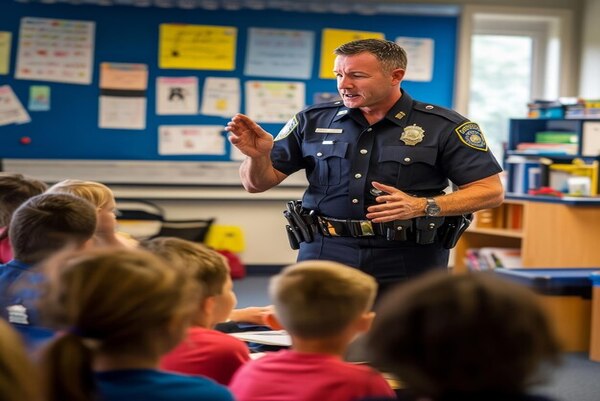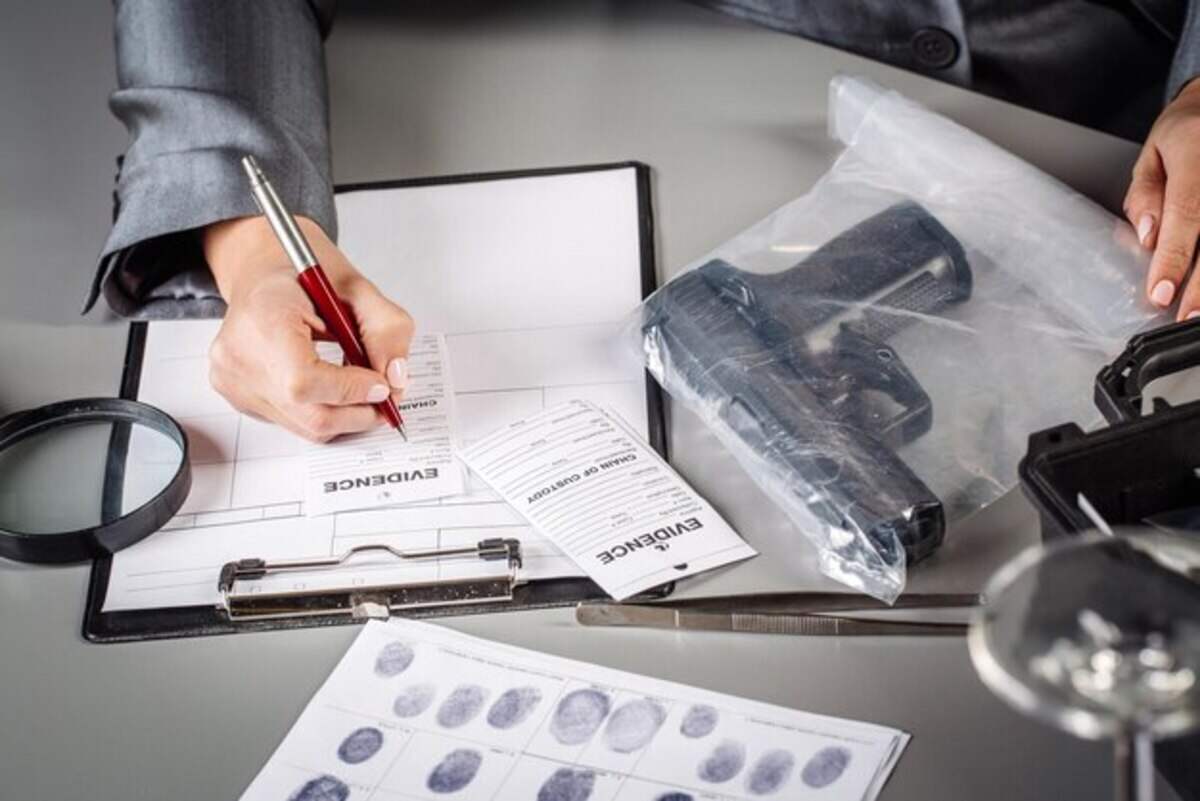How Forensic Psychologists Prevent Mass Shootings?
Mass shootings are devastating events that have far-reaching consequences for individuals, families, and communities, making the role of a forensic psychologist crucial in addressing and mitigating these tragedies.. Understanding and preventing these tragedies is a critical task that often falls to forensic psychologists. These professionals specialize in studying human behavior and identifying patterns that may signal potential threats of violence. By conducting threat assessments, providing intervention strategies, and offering education, forensic psychologists play a key role in mitigating risks and ensuring public safety.
They work closely with law enforcement, educators, and mental health professionals to identify warning signs and intervene before situations escalate. This article explores how forensic psychologists contribute to the prevention of mass shootings, offering valuable insights into the tools and strategies they employ to protect lives and communities.

Understanding the Psychological Profiles of Mass Shooters
Preventing mass shootings requires a deep understanding of the psychological traits and driving factors behind these devastating actions. Forensic psychology plays a crucial role in this process, as forensic psychologists study the mental profiles of mass shooters, identifying recurring patterns and behaviors that can inform targeted prevention strategies. By leveraging the insights gained through forensic psychology, communities and authorities can recognize warning signs early and collaborate to implement measures that reduce the risk of such tragedies.
Common Traits and Risk Factors
Although no single profile perfectly defines a mass shooter, certain traits and risk factors frequently appear.
- Feelings of Marginalization and Resentment: Many mass shooters experience a sense of rejection or alienation, often fueling a desire for revenge or recognition.
- History of Trauma: Childhood abuse, neglect, or significant traumatic experiences can influence violent tendencies.
- Untreated Mental Health Issues: Mental health challenges, such as depression or personality disorders, often go unaddressed, increasing the risk of violence.
- Exposure to Violent Environments: Prolonged exposure to violent media, abusive households, or aggressive social circles can desensitize individuals to violence.
- Desire for Recognition or Revenge: A need to feel powerful or noticed can drive some individuals to commit acts of mass violence.
By understanding these traits, forensic psychologists aim to distinguish those at genuine risk of committing violence from individuals who might exhibit similar behaviors but lack harmful intent.
Clear knowledge of these factors is critical for implementing targeted prevention strategies and creating safer communities.
Motivational Typologies of Mass Shooters
Forensic psychologists classify mass shooters based on their underlying motivations. This categorization helps in understanding the drivers behind such acts and tailoring interventions to address the specific root causes.
Key motivational typologies include:
- Ideologically Motivated Shooters: These individuals are driven by extremist beliefs, political causes, or religious ideologies. Their actions often stem from a desire to advance their perceived cause or make a statement.
- Personally Motivated Shooters: Such individuals act in response to interpersonal grievances, such as workplace disputes, family conflicts, or personal rejections. Their motivation is often rooted in feelings of betrayal, anger, or revenge.
- Psychopathic Shooters: These shooters display a lack of empathy, coupled with a desire for dominance, control, or power. Their actions are often calculated and driven by a sense of superiority or personal gratification.
Recognizing these distinctions enables forensic psychologists to develop targeted strategies that address the unique psychological and environmental factors contributing to each type of motivation. Building these tailored approaches is essential for mitigating the risks of mass shootings and fostering proactive prevention measures.
The Role of Pre-Attack Behaviors in Preventing Mass Shootings
Mass shooters frequently display pre-attack behaviors that can serve as critical warning signs. Recognizing and understanding these actions is a cornerstone of effective prevention. Key pre-attack behaviors include:
- Leakage: Disclosing intent to commit violence, either directly or indirectly, to others through conversations, social media, or written communications.
- Attack Planning: Engaging in detailed preparations, such as selecting targets, mapping locations, or rehearsing the act.
- Weapon Acquisition: Procuring firearms, ammunition, or other tools necessary to carry out the attack.
Forensic psychologists analyze these behaviors to identify actionable warning signs, empowering authorities to intervene before violence occurs. Early recognition of these behaviors provides an opportunity to disrupt potential attacks and save lives.
By examining the psychological profiles and pre-attack behaviors of mass shooters through detailed evaluations, forensic psychologists lay the groundwork for evidence-based strategies. These tailored approaches address the unique risks posed by individuals in various contexts, creating a proactive framework for violence prevention.
Addressing Common Misconceptions About Mass Shootings
Misconceptions about mass shootings can hinder the creation of effective prevention strategies. Here are key myths and the realities behind them:
Myth: Mental illness is the primary cause.
Reality: While mental health issues may play a role, studies show most individuals with mental disorders are nonviolent. Other significant factors include:
- Personal grievances
- Social isolation
- Easy access to firearms
Myth: Mass shooters “snap” without warning.
Reality: These acts are often the result of:
- Detailed planning
- Behavioral changes, such as increased aggression or social withdrawal
- Obsessive focus on violent themes
Forensic psychologists analyze these patterns to intervene before violence occurs.
Myth: Mass shooters fit a specific demographic profile.
Reality: Relying on stereotypes can lead to biased assumptions and overlooked threats. Instead, forensic psychologists:
- Conduct individualized assessments
- Focus on behavior and context rather than oversimplified profiling
Breaking these misconceptions helps in developing informed, unbiased, and effective strategies to prevent mass shootings.

The Role of Forensic Psychology in the Prevention and Postvention of Mass Shootings
Forensic psychologists play a vital role in tackling the complex issue of mass shootings. With their specialized skills, they contribute significantly to both prevention efforts before an incident occurs and recovery processes in its aftermath, often referred to as postvention. These professionals provide insights into identifying warning signs, implementing intervention strategies, and supporting communities in healing after such traumatic events.
This dual focus makes forensic psychology an indispensable field for addressing both the roots and repercussions of mass violence.
Prevention: The Key Role of Forensic Psychology in Reducing Mass Shootings
Prevention efforts are central to the role of forensic psychology in mitigating mass shootings. Forensic psychologists employ a variety of strategies to identify risks and address them proactively, including:
Threat Assessments:
- Systematic evaluation of potential risks.
- Collaboration with law enforcement, schools, and workplaces.
- Use of structured tools like the Violence Risk Appraisal Guide (VRAG) to analyze:
- History of violence.
- Access to weapons.
- Social sup
Training Programs:
- Educating stakeholders such as educators, administrators, and law enforcement on recognizing and addressing warning signs.
- Implementation of behavioral threat assessment teams in schools, which include psychological expertise to manage potential threats effectively.
By combining evaluation tools with proactive education, forensic psychologists play a critical role in preventing violent incidents before they occur.
Postvention: Supporting Recovery After Mass Shootings
In the aftermath of a mass shooting, forensic psychologists offer essential services, including therapy services, to help survivors, families, and communities recover. Their postvention efforts include:
Psychological Autopsies:
- Analyzing the perpetrator’s motives and mental state.
- Providing insights to improve future prevention strategies.
Trauma Recovery Support:
- Offering counseling to help individuals process grief.
- Designing resilience-building programs to mitigate the long-term effects of trauma.
These interventions are crucial for promoting healing and restoring a sense of safety in affected communities. By addressing both the psychological and social impacts of mass violence, forensic psychologists play a pivotal role in long-term recovery efforts.

Advancing Research That Reduces All Forms of Gun Violence
Forensic psychologists play a vital role in advancing the scientific understanding of gun violence and developing evidence-based solutions. Their contributions address not only mass shootings but also other forms of gun violence, including:
Suicides:
- Analyzing psychological factors and warning signs to inform prevention efforts.
Domestic Violence:
- Examining the intersection of interpersonal conflict and access to firearms to reduce risks.
Community Gun Crime:
- Studying social and cultural factors that drive firearm-related violence in communities.
Through research on these issues, forensic psychologists help shape policies and practices that prioritize public safety, offering actionable strategies to mitigate gun violence across all contexts.
Understanding Behavioral Patterns: Insights Into Grievance-Driven Violence
Research by forensic psychologists has uncovered key behavioral patterns common among mass shooters, particularly grievance-driven violence. These individuals often:
Perceive Themselves as Victims:
- Harbor feelings of injustice and resentment.
- View violence as a means to address perceived wrongs.
Exhibit Warning Signs:
- Increasingly isolative behaviors.
- Expressions of anger or threats of aggression.
This understanding enables professionals to design targeted interventions that focus on addressing these grievances early, preventing escalation into violence. By identifying and mitigating these patterns, forensic psychologists contribute to proactive and effective prevention strategies.
Policy Advocacy
Forensic psychologists play a pivotal role in influencing public policy by providing data-driven insights to lawmakers. For example, research consistently demonstrates that easy access to firearms significantly heightens the risk of mass shootings. Using this evidence, forensic psychologists advocate for balanced policies like red flag laws. These laws enable temporary firearm removal from individuals who are deemed a threat, effectively safeguarding public safety while respecting individual rights.
Collaborative Research Initiatives
Addressing gun violence requires a collaborative, multidisciplinary approach. Forensic psychologists team up with criminologists and public health experts to create comprehensive solutions. Together, they conduct joint research to pinpoint effective prevention strategies. One key focus is on community-based interventions that limit gun accessibility and foster essential skills like conflict resolution, creating safer and more harmonious communities.
By combining advocacy and collaboration, forensic psychologists are instrumental in driving policy changes and building evidence-based programs that mitigate gun violence. Their efforts help create actionable pathways to safer environments for everyone.

Enhancing Community-Based Interventions and Leveraging Technology for Early Threat Detection
Preventing mass shootings requires a multifaceted approach that combines community-based strategies with advanced technological tools. Forensic psychologists play a vital role in designing, implementing, and refining these measures to address potential threats effectively while maintaining ethical standards.
Community-Based Interventions and Early Detection Systems
Community-based interventions are essential for identifying and addressing risks within their social context. Forensic psychologists collaborate with schools, workplaces, and local organizations to implement tailored early detection systems. These systems help identify individuals at risk and provide appropriate interventions before violence occurs. By working directly with communities, forensic psychologists ensure these measures are culturally sensitive and practical.
Community Training Programs
Empowering community members through education is another critical strategy. Forensic psychologists develop training programs that teach individuals how to recognize warning signs of violence, such as changes in behavior or explicit threats. These programs emphasize bystander intervention, enabling participants to act responsibly by reporting concerns and seeking help for at-risk individuals.
Strengthening Social Support Networks
Loneliness and social isolation are common precursors to violent behaviors. To mitigate these risk factors, forensic psychologists advocate for programs that build strong community bonds. Initiatives such as mentorship programs, peer support groups, and inclusive activities foster a sense of belonging. Strengthened social networks reduce the likelihood of individuals feeling disconnected and resorting to violence.
Leveraging Technology and Data Analytics
Technological advancements provide innovative tools to enhance early detection and prevention efforts. Forensic psychologists increasingly employ data-driven systems to identify potential threats.
- Social Media Monitoring:
Many individuals who commit mass shootings exhibit warning behaviors online, such as posting violent content or grievances on social media platforms. Forensic psychologists collaborate with tech companies and law enforcement to create algorithms that detect such behaviors while safeguarding privacy. Analyzing online activities enables timely interventions for at-risk individuals. - Behavioral Analytics:
Advanced tools analyze patterns of behavior associated with risk factors, such as financial stress, interpersonal conflicts, and firearm access. These insights improve the accuracy of risk assessments and inform the development of intervention protocols.
Ethical Considerations
While technology offers powerful solutions, forensic psychologists prioritize ethical considerations, advocating for transparent practices that protect individual rights. Balancing privacy concerns with public safety ensures that these tools are used responsibly and effectively.
By integrating community-based strategies with technological innovations, forensic psychologists create a comprehensive approach to reducing the risk of mass shootings, fostering safer and more connected communities.
Conclusion
Preventing mass shootings requires a collaborative and multi-pronged approach, with forensic psychologists playing a pivotal role in identifying risks, educating communities, and developing evidence-based strategies. Their expertise in psychological profiling, risk assessment, and intervention enables them to recognize warning signs and prevent violence before it occurs. By combining their knowledge with advancements in technology, community-based interventions, and policy advocacy, forensic psychologists create actionable solutions to tackle this complex issue. Their work not only reduces the immediate threat of mass shootings but also fosters long-term resilience and safety in communities. The integration of research, education, and intervention strategies ensures a proactive approach to addressing the root causes of mass violence, making forensic psychology indispensable in creating a safer society.
FAQs
How do forensic psychologists identify potential mass shooters?
Forensic psychologists analyze psychological profiles, behavioral patterns, and pre-attack behaviors, such as threats or social media posts, to identify individuals at risk.
What role does technology play in preventing mass shootings?
Technology, like social media monitoring and behavioral analytics, helps forensic psychologists and authorities detect early warning signs while balancing ethical concerns around privacy.
Are mass shootings always linked to mental illness?
No, while mental health issues may contribute, factors like social isolation, personal grievances, and access to firearms are often more significant drivers.
How do community-based interventions help prevent mass shootings?
These interventions build strong social networks, educate on warning signs, and promote bystander reporting, creating support systems that reduce the risk of violence.
What is the role of forensic psychologists after a mass shooting?
Post-shooting, forensic psychologists provide trauma counseling, analyze the shooter’s motivations, and offer insights to improve future prevention efforts.

